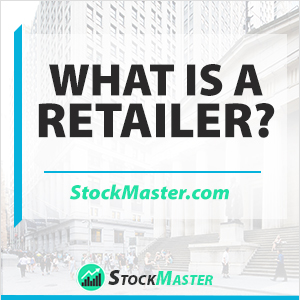 What is A Retailer?
What is A Retailer?
Definition: A retailer is an individual or an entity that deals directly with consumers.
In this case, it can be a business that sells and goods and service to consumers through brick and mortar store or an online platform.
Retailer Examples
A Retailer can be a small store or a large enterprise that deals in an assortment of products. Walmart and Amazon are some of the well-known retailers. The fact that retailers deal with end consumers is one of the reasons why most of them deal in a wide array of products ranging from clothing to jewelry books as well as electronics
Depending on the jurisdiction, there are requirements that one needs to operate as a retailer. In addition to local licenses, an individual or entity might have to register to deal with certain products. For instance, retailers need proper documentation to deal with Apple products. The same applies when dealers are selling cars.
Types of Retailers
Contrary to perception, brick and mortar retailers are not the only ones in a highly developed market. There are thousands of retailers ranging from a sole person enterprise to large enterprises such as Amazon. Amidst the disparity, all of them share one attribute, which is dealing directly with consumers.
Likewise, online platforms that deal directly with consumers in the provision of goods and services are considered retailers. Kiosks that emerge during special events, as well as catalogs that conduct businesses solely, are also considered retailers.
Art shows and fair shows also give rise to retailers in the form of people or entities displaying their products and dealing directly with consumers.
Retailers Role
Retailers play an important role in ensuring the free flow of products from manufacturers to consumers. Retailers source their products from wholesalers and then sell them directly to consumers at a recommended retail price.
Depending on the nature and size of the retailing process, a retailer may operate a large warehouse for storing a wide array of products that consumers need. Some outsource the services when their warehouses are overwhelmed.
When it comes to pricing, retailers tend to charge more than what they actually bought for the products from manufacturers or wholesalers. By charging more, they can generate a profit on the price difference between what they bought and what they sold.
Similarly, some retailers offer goods to consumers on credit as a way of satisfying customer satisfaction. By offering products on credit, a retailer can cling on and create a loyal customer base. Offering goods on credit also requires the retailers to include a risk management plan to avoid accumulating so many bad debts.
Retailer Pros & Cons
Advantages
The ability to sell products to end-users allows retailers to earn more for the same items compared to wholesalers. Retailers sell products at a full price, thus allowing them to generate maximum profit as opposed to wholesalers who must offer discounts to retailers to get rid of inventories.
Retailer’s s gain access to a wealth of marketing opportunities given their ability to interact directly with consumers. Depending on marketing strategies deployed, retailers can develop rock-solid relationships with consumers that can lead to repeat businesses
Online retailers are increasingly cropping up, given the high-profit margins available with this mode of operations. Online retailers no longer have to incur rental charges, as is the case with brick and mortar stores.
Disadvantages
Operating a retail business can be risky at times, as one buys goods in bulk with the assumption that consumers will buy all of them.
Dealing with consumers can also give rise to lots of problems, especially when offering goods on credit.
Changing consumer-shopping patterns can also make it difficult for retailers to generate desired sales.
Summary
A retailer is simply and individual or business that buys goods from a manufacturer or wholesaler to sell to consumers. Such entities act as intermediaries between manufacturers and consumers.
